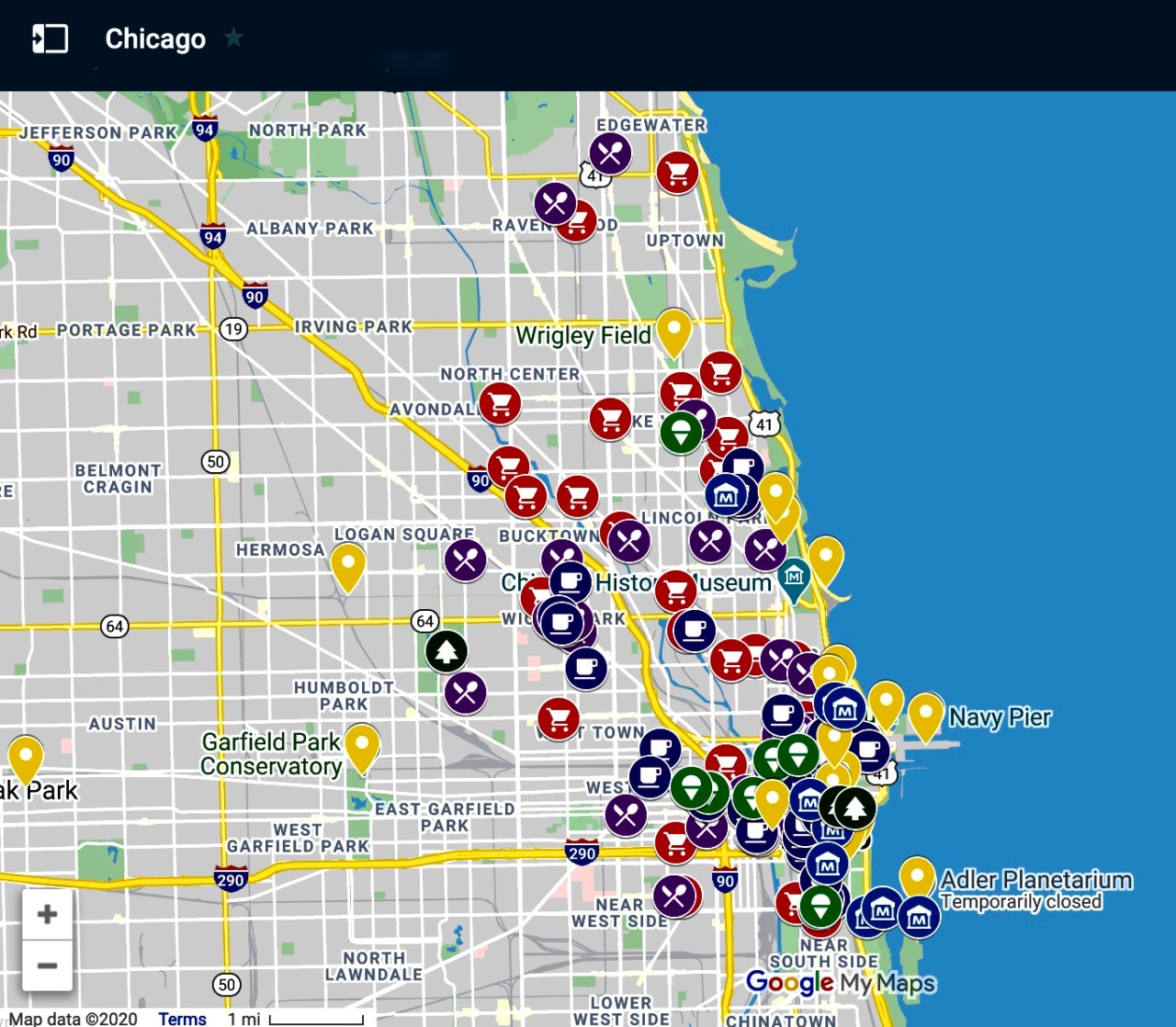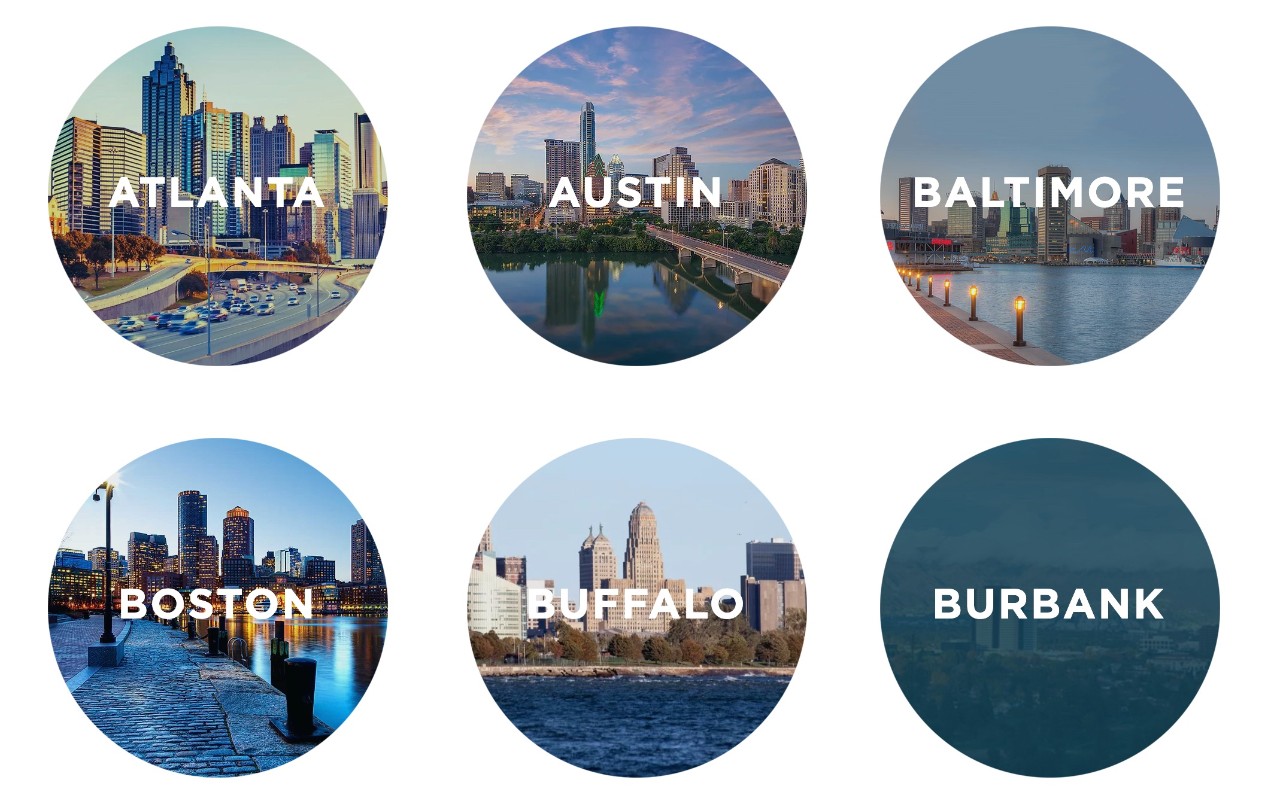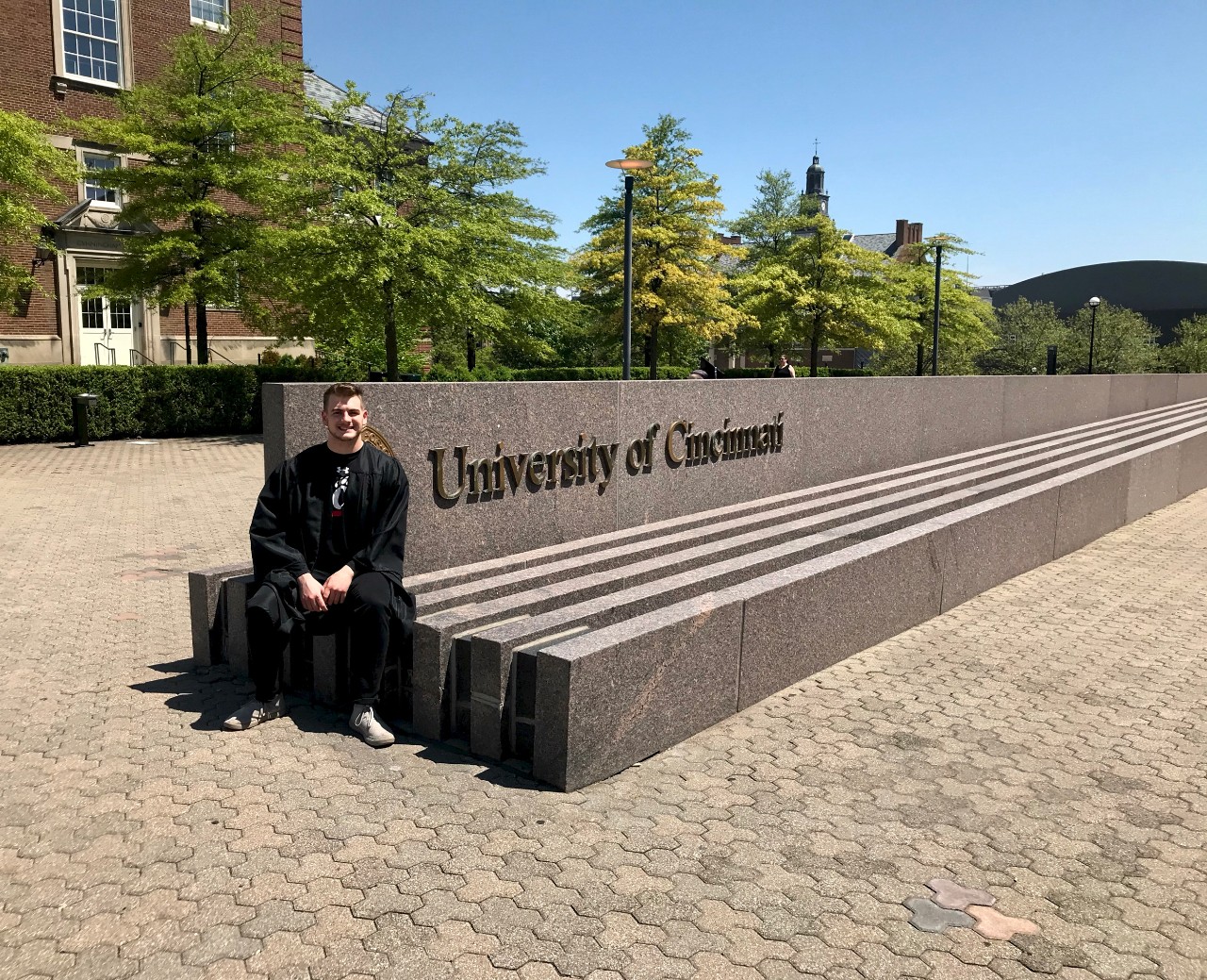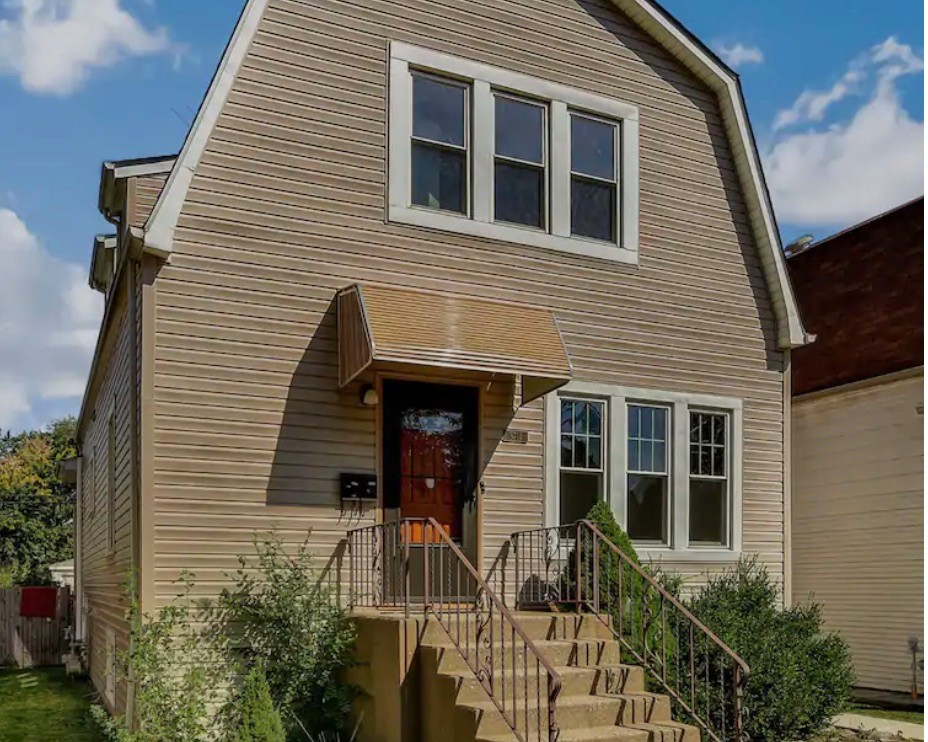
Going on co-op? Get the inside scoop on affordable housing, more.
New website offers network of resources for safe, efficient co-op living
In the real world of remote co-ops, the best advice for where to live and how to get around in a new city typically comes from students who have been there before.
Through a new University of Cincinnati co-op website out of the College of Design, Architecture, Art, and Planning (DAAP), students now have a centralized source for tapping into the most desirable long- and short-term housing, roommates, transportation and entertainment in most major cities throughout the U.S.
As the birthplace of cooperative education more than 100 years ago, UC continues to expand cooperative education throughout its programs, supporting a strong pillar of the university’s Next Lives Here strategic direction.
Aptly titled uccoop.com, the website idea was “born out of necessity,” says Ben Paulus, the site’s original creator and a spring 2020 DAAP architecture grad. As a senator in DAAP’s student government known as DAAP Tribunal, Paulus focused his efforts on making a website as early as the fall of his sophomore year.
One-stop shopping
“As a sophomore working in a co-op at BCT Architects in Baltimore, I worked on a housing project for senior living so I was looking closely at complexes that had assisted living, memory care and independent living,” says Paulus. “As I was designing for people who could age in place in one specific area with the right kind of help as their needs increased, the project really changed my outlook on how housing is designed for the older generation. This also led to thinking about the personal housing issues I faced as a student.”
The co-ops we work for as architecture students really set us up for getting good jobs after we graduate with our master’s degrees.
Ben Paulus UC DAAP architecture grad student

Inside the website students can access individual housing by clicking onto the location icon to take a virtual tour.
Even while away from campus, Paulus continued communicating with the DAAP Tribunal throughout his own co-op semesters, and as an initiative brought up the need for creating an easier way for students to find necessary amenities.
“In my first time searching for housing it was an extra hassle on top of being in school, doing homework, finding a job and now trying to find housing once you got that job. So the notion of a one-stop shopping for housing could make the process so much easier,” he adds.
Seeing the ongoing need for a trustworthy centralized resource, Paulus initially reached out to local DAAP students through online surveys gathering data about their past experiences.
Beginning with UC architecture students, Paulus surveyed about where they lived, how much they paid for apartments or housing and what kind of transportation was available in their particular city.
Cooperative community

Starting with five cities in 2019, the website now includes 32 cities across the country from Atlanta to Washington, D.C.
Before long, Paulus was immersing the nascent site with suggestions from different group chats he had surveyed across campus. In the spring of 2019, the data included input from not only UC students but co-op students from other colleges and universities. By fall of the same year his website was up and running with funding from DAAP Tribunal’s E2C (Engaging Emerging Creatives) co-op recruiting organization.
In an earlier interview for a new podcast site created by DAAP architecture grad student Roger Chanin, Paulus explains the end result of gathering data for more than two years. “Currently, we have 32 city pages linked with information like recommended neighborhoods, public transportation, grocery stores, ways to link up with alumni and much more.”
Inside each city bubble you can click on links to other helpful sites such as Airbnb, HotPads, Zillow, Apartments.com and others, he adds.

By clicking onto a city bubble, students can gain access to housing resources such as Airbnb, HotPads, Zillow, Apartments.com and more.
The individual city pages also deliver information for tracking each housing location, airports, sports stadiums, museums and specialty shops listed on an interactive map. For example, Paulus says clicking onto a particular address will link directly to the apartment so students can get a virtual tour and a relative price range for how much it actually costs to live in that city.
And hints about the most efficient transportation, as well as contact info for students who previously lived there are included at the bottom of each page.
“We even have a forum tab for finding roommates or other UC students and alums to simply hang out with,” notes Paulus. “To keep the data current we include a survey tab for new students each time they complete an out-of-town co-op.”
“There is a tag on the bottom of the site that says, ‘Made by Bearcats, for Bearcats.’ Right now we’re trying to keep it within the UC community but if another college wants to use it that would be fantastic,” adds Paulus.
Building better Bearcats
As a new grad student returning to UC in the fall, Paulus will work toward his master’s degrees in architecture and business administration. When he finishes, he hopes to return to Seattle where he spent one of his co-ops working for affordable housing.

Recent DAAP architecture grad Ben Paulus, also the architect of DAAP Tribunal's uccoop.com website, plans to return to UC in fall 2020 to work on master's degrees in architecture and business administration.
“The co-ops we work for as architecture students really set us up for getting good jobs after we graduate with our master’s degrees,” adds Paulus. “As a grad student I will no longer be directing the site, but I have full confidence in the new team that will be making decisions.”
Now with seven members on the project’s team, Paulus says the website will be taking on a whole new look and more information throughout the coming year.
The web team works within the DAAP Tribunal structure and will be directed by Olivia Wenger, a third-year graphic design student who plans to dress the site up even more than it is now.
“Perhaps in the future we can build strong relationships with the housing and transportation companies,” says Paulus. “For now, our goal is to continue consolidating the information into one spot to trim the time students would normally spend on securing these basic needs and make the co-op process much easier.”
Featured image at top: UC DAAP architecture grad Ben Paulus jumps for joy at his spring 2020 graduation. All photos courtesy of Ben Paulus.
Impact Lives Here
The University of Cincinnati is leading public urban universities into a new era of innovation and impact. Our faculty, staff and students are saving lives, changing outcomes and bending the future in our city's direction. Next Lives Here.
Related Stories
PHOTOS: UC students help baby geese get to safety
April 16, 2025
UC biology students on Wednesday helped a family of Canada geese get from a sixth-floor skyway to the safety of the ground in an annual spring ritual. The geese have nested there for the last five years.
UC's first Marian Spencer Scholar set to graduate
April 16, 2025
Katelyn Cotton, an alum of Cincinnati's Walnut Hills High School, is the first Marian Spencer Scholar to graduate from the University of Cincinnati. Cotton, a political science major, will return for graduate school. She hopes to attend law school in the future.
UC political scientist named Carnegie Fellow
April 16, 2025
University of Cincinnati political scientist David Niven has spent a large part of his career examining how we vote. Now, a $200,000 Andrew Carnegie Corporation of New York fellowship award will help Niven dive deeper into the American polling system and how polling environments impact voters.


